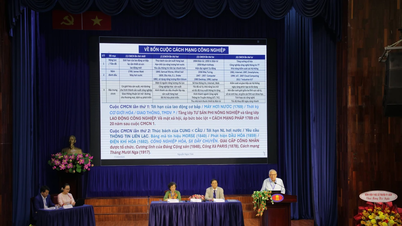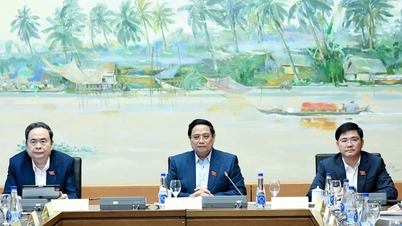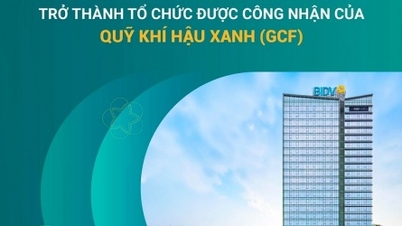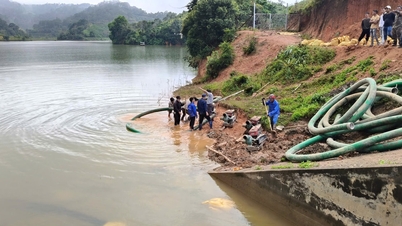Mr. Pulkit Abrol, Regional Director for Asia- Pacific and Mr. Chiew Chun Wee, Director of Policy in Asia-Pacific of the Association of Chartered Certified Accountants (ACCA) discussed the role of upskilling and improving accounting policies in promoting sustainable development and technological progress.
 |
| Mr. Pulkit Abrol, Regional Director for Asia- Pacific (left) and Mr. Chiew Chun Wee, Director of Policy in Asia-Pacific of the Association of Chartered Certified Accountants (ACCA) |
What is ACCA’s strategic focus this year? How does this align with the global agenda of environmental and digital transformation?
Mr Abrol: As the world’s largest professional accountancy body, ACCA plays a key role in guiding businesses towards sustainable practices that benefit all stakeholders. This year, ACCA has moved from a vision to an ambition statement, to lead the profession through a three-year strategic cycle, to meet the growing obligations of its global stakeholders.
At the heart of our strategy is the reimagining of the role of accountants. No longer just a back-office role, as many mistakenly believe, accountants play a vital role in managing digital transformation and environmental sustainability. Effective governance standards are essential for a just transition in these areas.
Accountants are involved in reporting, ensuring sustainability and addressing the ethical challenges posed by emerging technologies such as artificial intelligence (AI). ACCA supports the International Sustainability Standards Council and delivers initiatives to embed sustainability into financial processes.
Digital transformation is essential for sustainable progress. ACCA is prioritizing financial digital transformation, focusing on AI, big data and blockchain through our training programs and professional development initiatives.
Regionally, what is the most important aspect of ACCA's policy work?
Mr Chun Wee: ACCA provides extensive research and insights globally, always ensuring that inputs from the Asia-Pacific region are incorporated. This approach is important given Asia's important role in the global economy.
In the race to reach net zero emissions, a key focus is on ensuring a just transition to green energy solutions, to address growing global demand while also considering historical contributions to climate change.
With 780,000 members and students globally, half of whom are in Asia Pacific, our community in this region is a vital resource. We leverage their expertise, experience and insights to shape our global research. Understanding and addressing their needs is essential to serving them effectively, making Asia Pacific central to our work.
The accountancy profession has a key role to play in shaping financial and regulatory innovation on the road to Net-Zero. How is this being done?
Mr. Abrol: The accountancy profession takes its role in the Net-Zero agenda very seriously. We support regulators globally and amplify the voices of companies and organizations as compliance becomes increasingly important. Emerging economies like Vietnam face challenges in meeting far-reaching standards while competing globally.
To address these challenges, we equip our members and students with the knowledge, tools and access needed for sustainable finance initiatives. ACCA advocates on a global basis, addressing the environmental, social and governance aspects of the Net-Zero targets. We provide training in sustainability reporting and green finance, partner with the International Sustainability Standards Board and provide comprehensive sustainability research.
In Vietnam, we have made significant progress in the green and digital transformation. Celebrating our 22nd anniversary in Vietnam, we have established a joint project with the Ministry of Finance and partnered with universities such as the Foreign Trade University and the Academy of Finance. Last year, we trained 300 government officials on International Financial Reporting Standards (IFRS), roadmaps and policies. We also launched the world’s first Vietnamese-language IFRS certificate and partnered with the General Department of Vocational Education to integrate sustainability into vocational training.
Our commitment to Vietnam and the global community is central to our strategy to redefine the role of the accountant. Modern accountants are becoming “chief value officers”, creating value for all stakeholders and we are dedicated to fostering a community that is ready to meet these challenges.
Several of the United Nations Sustainable Development Goals (SDGs) have a direct impact on businesses. How does ACCA support businesses in achieving these goals?
Mr Chun Wee: We focus on 9 of the 17 SDGs where we can have the most impact. This is clearly reflected in our actions and our organizational purpose.
Specifically, to address SDG 13 on climate action, we support businesses with expertise, learning and thought leadership. Upskilling is critical for our members and students to understand the impacts, risks and opportunities of climate change. Our curriculum is constantly updated to include topics such as green finance and environmental impact.
This year, we’re incorporating new international standards for sustainability reporting to prepare our members and students to take effective climate action. We’re also offering continuing education programs, including our newly launched sustainability diploma.
In terms of thought leadership, we provide practical guidance. We addressed Scope 3 emissions 13 years ago in our Carbon We Don’t Count Report and other reports launched at COP28 in Dubai. These documents provide practical guidance for business leaders, supporting all sectors in tackling climate change.
There has been much talk about the increased use of AI, machine learning, big data and blockchain. Which of these areas require the most attention in the accounting profession?
Mr. Abrol: Investing in skills upgrading is crucial to keep up with technological advances. Strong policies are equally important. In the Asia-Pacific region, especially ASEAN, there is a significant skills gap. Rapid technological changes, accelerated by the pandemic and the development of AI and machine learning in the past 14-16 months, have further complicated this issue.
Automation adds complexity, raising concerns about how to upskill the workforce to compete with robots.
Effective policymaking and strong public-private partnerships are essential. Supporting investment in skills development and human capital is essential. ACCA addresses these challenges through initiatives such as the AI Monitor, which helps identify skills shortages and urgent needs.
Data privacy and security are important issues. Many public and private cloud systems are expanding, with significant investments from governments such as Singapore, Indonesia and Australia. Ensuring data privacy, government interoperability and standards such as invoicing are underway. However, compliance with different privacy and data security regulations across ASEAN countries also poses challenges.
Developing the infrastructure for AI, digital and blockchain investments is also key. The rapid pace of change requires attention to digital infrastructure needs. We must consider timelines for addressing these gaps and the impact of skill shortages over the next five years. Achieving net zero emissions is a significant goal and addressing these challenges is essential for the accountancy profession and the economy as a whole.
In your opinion, what policies should the Vietnamese Government focus on to increase foreign investment attraction and promote the green-digital transformation process?
Mr. Chun Wee: To increase its attractiveness to foreign investors and promote the digital green transformation, the Vietnamese Government should focus on several key areas.
The Government has been successful in implementing policies such as feed-in tariffs in the past, which have significantly increased renewable energy capacity. Such policies have made investment very attractive to domestic and foreign stakeholders, leading to a rapid increase in renewable energy capacity within five years. However, ensuring the long-term sustainability and cost-effectiveness of the sector requires continuous policy adjustments.
In general, foreign investors prioritize returns, stability and transparency in policy and legal frameworks. Ensuring these characteristics in policy implementation is essential to building foreign investors’ confidence and trust. This approach is important for any jurisdiction that wants to increase its attractiveness to foreign capital.
From an accounting and finance perspective, the adoption of global standards is important. International standards provide a common language that enhances understanding and trust. Vietnam is making significant progress in adopting IFRS, which is important for attracting foreign investment. ACCA supports this through a variety of initiatives, including our qualification programmes.
Furthermore, the growing importance of sustainability has led to the need for international sustainability reporting standards. Investors and stakeholders are increasingly focused on how companies and the public sector communicate their efforts to achieve net zero emissions and other sustainability goals.
The forum will be attended by government officials, business leaders and experts from various sectors, especially from the Asia-Pacific region. Discussions will focus on promoting green and sustainable economic growth, as well as the future of education through sustainable technology and digital innovation. Speakers will provide insights on how to leverage technology for regional trade and the use of AI in sustainable education.
Source: https://baodautu.vn/acca-thuc-day-chuyen-doi-kep-tai-chau-a---thai-binh-duong-d215708.html



![[Photo] Cutting hills to make way for people to travel on route 14E that suffered landslides](https://vphoto.vietnam.vn/thumb/1200x675/vietnam/resource/IMAGE/2025/11/08/1762599969318_ndo_br_thiet-ke-chua-co-ten-2025-11-08t154639923-png.webp)

































![[Photo] "Ship graveyard" on Xuan Dai Bay](https://vphoto.vietnam.vn/thumb/1200x675/vietnam/resource/IMAGE/2025/11/08/1762577162805_ndo_br_tb5-jpg.webp)







![[Video] Hue Monuments reopen to welcome visitors](https://vphoto.vietnam.vn/thumb/402x226/vietnam/resource/IMAGE/2025/11/05/1762301089171_dung01-05-43-09still013-jpg.webp)
































































Comment (0)